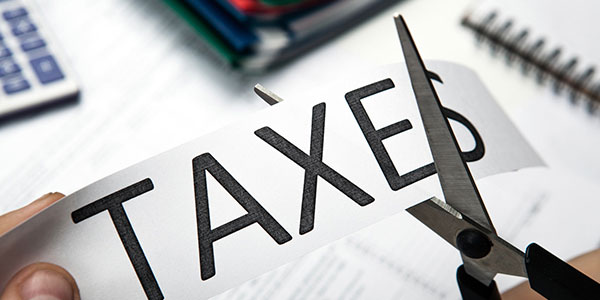Speaking of taxes, past performance is an excellent indicator of the types of deductions that a business usually enjoys each year.
In the recent past, the Internal Revenue Service (IRS) has released information about the Schedule C taxpayers. Some of the most popular tax deductions claimed by sole proprietors of small businesses have been discussed here.
Other entities like C corporations, S corporations, partnerships, and limited liability companies (LLCs) can claim same types of tax deductions. However, the rules might differ a bit for certain deductions.
Car and truck cost
Many small businesses require a vehicle, for example: a car, light truck or van. The operating cost for the vehicle is tax deductible. But, records are needed to prove business usage for such deductions.
The need to keep records of expenses like gasoline, oil changes, etc. has been omitted, provided business owners comply with the IRS standard mileage rate of 57.5 cents per mile instead of deducting real outlays.
Read also: Small business regulation: Too many laws deter new entrepreneurs
Salaries and wages
Payments made to the sole proprietors, LLC members, and partners of the business, are nondeductible. However, salaries paid to employees are deductible.
Contract labor
A lot of small business owners work with independent contractors to fulfill their labor demands. The cost of contract labor like this is tax deductible. But, it's important for the proprietor to issue FORM 1099-MISC to a contractor who receives a payment of $600 or more in that same tax year.
If the payment was made using a credit card or PayPal, then the processor can issue FORM 1099-K to the recipient. Still, to protect their interest, proprietors should send 1099-MISC to their contractors and avoid the ire of the IRS.
Rent on business property
The cost of renting space — an office, storefront, factory, or other types of facility — is fully deductible.
Depreciation
The cost of buying property for business purpose is tax deductible. Equipment purchases worth of not more than $500,000 can be deducted, as per Section 179. It also includes 50% bonus depreciation.
Supplies
Items used in a business for cleaning purposes or any other services are fully deductible.
Utilities
Cost of electricity for business purpose is fully deductible. Miscellaneous utility expenses like cell phone charges are also deductible. However, in case of home office deduction, the cost of the second landline to a home is deductible, but not the first one.
Taxes
Deduct state and local sales tax you charge on your goods and services. Taxes charged on goods and services for business purposes must be deducted. The amount collected from the customers is included in the gross receipts. Other costs paid on licenses and regulatory fees; real estate and property taxes are also deductible. Employer taxes including state unemployment taxes and employer share of FICA/FUTA can be fully deducted. But, the deduction of self-employed business owners’ self-employment tax isn’t a business deduction. Rather that’s an adjustment to their gross income on their personal income tax return.
Meals and entertainment
Up to 50% of both meals and entertainment expenses are deductible.
Hence, half of a business lunch cost would be on you and the other half on Uncle Sam. But the deduction can only be claimed if the respective cost is substantiated as per the IRS Publication 463.
Rent on machinery and equipment
Cost of lease or rent paid on items used in business is fully deductible.
Employee benefit programs and qualified retirement plans
Every dime paid toward employee benefit programs like education assistance, dependent care assistance, as well as contributions to employees’ qualified retirement plan accounts are deductible.In the case of self-employed individuals, contributions to their qualified retirement plan accounts are personal deductions and should be claimed using Form 1040.
Small business owners will have to decide the type of tax deductions they want to claim out of their business tax return. They can consult a CPA or any other tax expert to ensure that they qualify for all the deductions claimed.
Check out: Tax hacks - Innocent mistakes that can bring double trouble in 2016









